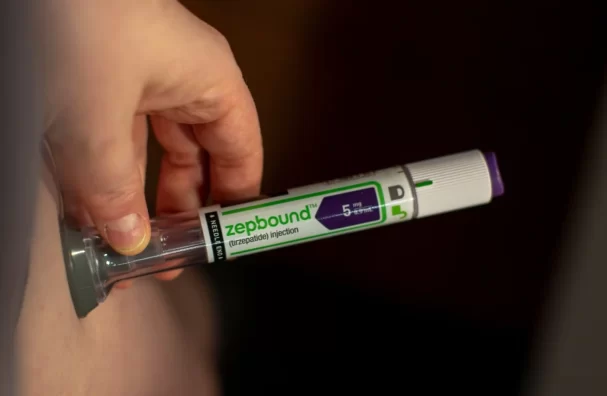
Sleep Apnea is a common disorder with severe potential health implications. Its link with obesity is well-documented and the search for effective treatments is continuous. One promising candidate is Zepbound, a weight loss drug developed by Eli Lilly.
Sleep apnea is a severe sleep disorder that occurs when a person’s breathing repeatedly stops and starts during sleep. There are two main types: obstructive sleep apnea, the more prevalent form, and central sleep apnea. It’s a potentially severe disorder with symptoms like gasping for air during sleep, snoring loudly, and waking up feeling tired.
Obesity is a significant risk factor for sleep apnea. About 70% of people with obstructive sleep apnea are overweight or obese. The excess fat deposits around the upper airway obstruct breathing, leading to the condition.
Zepbound is an innovative drug developed by Eli Lilly, primarily for weight loss. It works by mimicking the effects of a hormone called glucagon-like peptide-1 (GLP-1) that targets areas of the brain that regulate appetite and food intake.
Zepbound’s primary role is promoting weight loss. It helps overweight and obese individuals lose weight by reducing their appetite and increasing feelings of fullness. By doing so, it aids in significant weight reduction, which can improve various health conditions, including sleep apnea.
Zepbound underwent stringent clinical trials to test its effectiveness and safety. The trial results were promising, with participants experiencing substantial weight loss compared to those on a placebo.
Given the strong link between obesity and sleep apnea, drugs that effectively promote weight loss, like Zepbound, could potentially alleviate sleep apnea symptoms. By helping patients lose weight, Zepbound may reduce the fat deposits around the upper airway, improving breathing during sleep.
The market for sleep apnea treatment is vast and growing. With a rising prevalence of obesity worldwide, the number of people suffering from sleep apnea is increasing, creating a high demand for effective treatments. Zepbound, with its dual potential to promote weight loss and improve sleep apnea, could capture a significant market share.
Despite the promising potential of drugs like Zepbound, treating sleep apnea is not without challenges. Medications must be safe for long-term use and effective in reducing sleep apnea symptoms. Further, they must be part of a comprehensive treatment plan that includes lifestyle changes like diet and exercise.
The future of Zepbound looks bright. If further studies confirm its effectiveness in treating sleep apnea, it could become a game-changer in the field. However, further research and clinical trials are needed to fully understand its potential.
